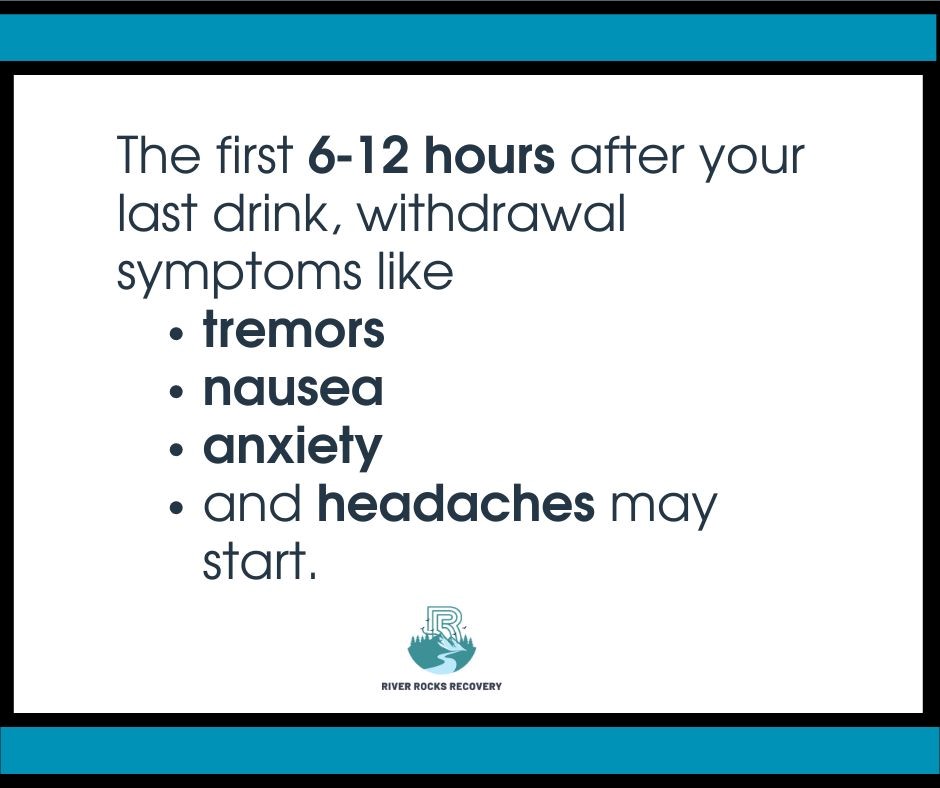You’ve decided enough is enough. The countless nights spent in a drunken stupor, the strained relationships, the health issues –it’s time to make a change. Getting sober may seem like an insurmountable task, but River Rocks Recovery in Middletown, Ohio has the tools and resources to help guide you through the recovery process. With comprehensive programs like their partial hospitalization program, intensive outpatient program, and traditional outpatient services paired with proven modalities such as cognitive-behavioral therapy and dialectical behavior therapy, you can take the first steps towards getting your life back on track. Recovery is possible, but it starts with that critical first step – reach out today at (888) 905-6281 or connect with us online and begin your path to sobriety.
Understanding How to Get Sober
The Difficult Road Ahead
Overcoming addiction is one of life’s greatest challenges. The path to sobriety requires immense determination, courage, and perseverance. But you don’t have to walk it alone.
Professional Support
Getting sober involves more than just willpower. Seek professional help from addiction specialists like those at River Rocks Recovery. Their evidence-based therapies – provide tools to restructure thoughts and behaviors.
Comprehensive Care
River Rocks offers a full continuum of care from partial hospitalization to outpatient programs. This multi-level approach ensures you receive the right level of support as your needs evolve. The journey is difficult, but achievable with proper guidance.

Getting Sober From Alcohol Timeline
Withdrawal Symptoms
The first 6-12 hours after your last drink, withdrawal symptoms like tremors, nausea, anxiety and headaches may start. These peak around 24-72 hours and can include sweating, heart palpitations and insomnia.
Acute Withdrawal
Days 3-7 are often the most difficult, with potential delirium tremens (DTs) – severe confusion, fever, agitation and hallucinations. Medical support is crucial during this acute withdrawal phase.
Post-Acute Withdrawal
Symptoms like mood swings, sleep issues and cravings can persist for weeks or months after detox in post-acute withdrawal syndrome (PAWS). Counseling and ongoing recovery support is key.
Treatment for Getting Sober From Alcohol
Comprehensive Care Approach
River Rocks Recovery offers a comprehensive continuum of care to support your sobriety journey every step of the way. Their evidence-based programs provide the tools and therapies proven to help overcome alcohol addiction.
Personalized Treatment Plans
Your path begins with a thorough assessment to understand your unique needs and challenges. From there, compassionate professionals develop a personalized treatment plan leveraging proven therapies like cognitive-behavioral therapy (CBT), dialectical behavior therapy (DBT), individual and group counseling.
Find Help
Seek Professional Support
Overcoming addiction requires professional guidance and support. Consider seeking help from addiction treatment centers like River Rocks Recovery in Middletown, Ohio, which offer comprehensive programs to aid your recovery journey.
Explore Treatment Options
River Rocks Recovery provides various evidence-based treatment options, including:
Step-Down Levels of Care
River Rocks’ programs include a partial hospitalization program (PHP) for intensive daily treatment, an intensive outpatient program (IOP) for a gradual step-down in care, and an outpatient program for ongoing support. This step-down approach allows you to transition smoothly while building a strong recovery foundation.
Embrace a Supportive Community
Surrounding yourself with a supportive community can significantly impact your recovery process. River Rocks Recovery fosters a nurturing environment where you can connect with others facing similar challenges, share experiences, and find strength in unity.
Stay Out of Risky Situations
Avoid Triggers
Certain people, places or activities can trigger cravings and increase relapse risks. Identify your triggers and steer clear. If attending an event where alcohol will be present, have an exit plan. Attending relapse prevention therapy is essential for maintaining sobriety.
Manage Stress Healthily
High stress weakens resolve and coping skills. Prioritize self-care through exercise, meditation, journaling, or talking to a counselor. Build a sober support network.
Change Routines
Shake up old habits tied to substance abuse. Try new hobbies, hang out in different locations, and spend time with sober friends. Staying busy with positive replacements is key for relapse prevention.
Build a Support Network
Recovering from addiction is challenging, but a strong support system can make the journey easier. Surrounding yourself with positive influences and people who understand your struggles is crucial.
Seek Out Support Groups
Attend local support group meetings or join online communities for those in recovery. Hearing from others who have walked a similar path can provide invaluable encouragement and advice. Many find solace in the shared experiences and accountability.
Involve Loved Ones
Share your recovery journey with close family and friends. Their understanding and encouragement can motivate you during difficult times. Consider inviting them to counseling sessions to learn how they can best support your sobriety.
Make New Connections
Develop new, sober friendships through activities or hobbies that align with your values. Positive connections free from substance abuse can enrich your life and prevent isolation. With a robust support network, you’ll have a team cheering you on every step of the way towards lasting recovery.
Find an Activity That Means Something to You
Explore New Hobbies
Recovering from addiction requires filling the void with positive activities. Explore new hobbies or rediscover old passions that bring you joy and fulfillment. Engaging in meaningful pursuits can provide a sense of purpose, build self-esteem, and create a supportive community.
Get Active
Physical activity is a powerful tool in addiction recovery. Exercise releases endorphins, reduces stress, and improves overall well-being. Find an enjoyable form of exercise, whether it’s hiking, cycling, or joining a local sports league. The key is to make it a regular part of your routine.
Volunteer or Join a Group
Giving back to your community or joining a group with shared interests can provide a sense of belonging and connection. These activities allow you to form new, positive relationships and contribute to something greater than yourself. Look for local organizations or groups that align with your values and interests.
Conclusion
While the road to addiction recovery is not easy, you now have the basic tools to take those critical first steps. With support programs, therapy, and determination, you can overcome substance abuse. River Rocks Recovery’s qualified staff provide comprehensive treatment plans tailored to your needs. Their therapy programs, including CBT and DBT, along with partial hospitalization, intensive outpatient, and standard outpatient services can put you on the path to lifelong sobriety. You have the power within you to break the cycle of addiction. Call River Rocks Recovery today at (888) 905-6281 to start your journey.
Frequently Asked Questions About Getting Sober
What is addiction recovery?
Addiction recovery is the process of overcoming substance abuse or behavioral addictions through professional treatment and lifestyle changes. It involves addressing the physical, mental, and emotional aspects of addiction to achieve sobriety and improve overall well-being.
How long does it take to recover?
Recovery is a lifelong journey, but the initial stages can be intense. Detox typically lasts 5-7 days, while inpatient or outpatient treatment programs range from 30-90 days. However, the timeline varies based on the severity of addiction and individual needs.
What happens during addiction treatment?
Evidence-based therapies like CBT, DBT, individual/group counseling are used to identify triggers, develop coping mechanisms, and build a supportive network. Programs like PHP, IOP, and outpatient care at River Rocks Recovery provide structured treatment tailored to each client’s needs.
How can I stay sober long-term?
Ongoing support through 12-step programs, sober living communities, and aftercare services can help maintain sobriety. Building a healthy routine, managing stress, and addressing underlying issues are crucial for preventing relapse and sustaining recovery.




























